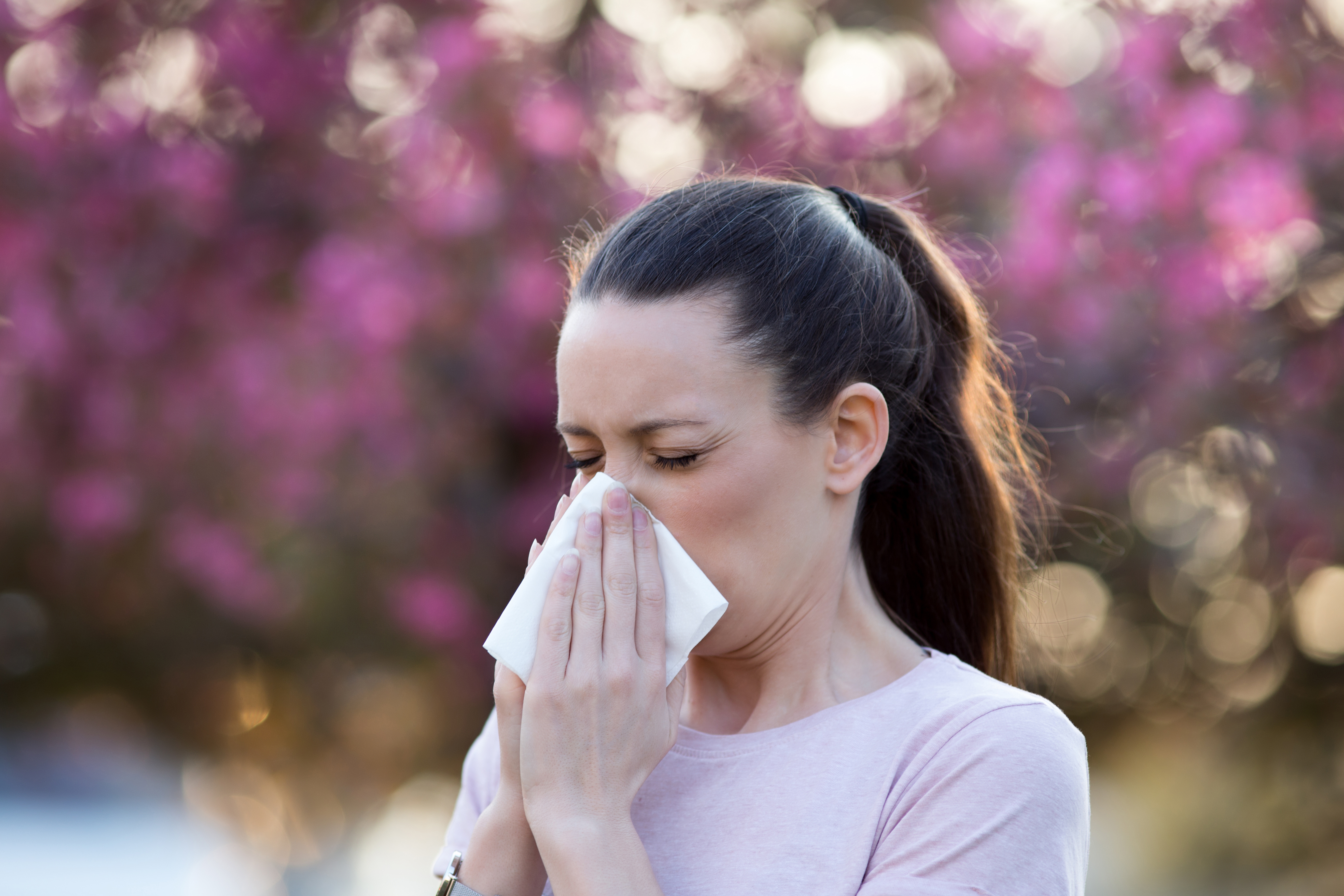Not only does spring bring warmer days, pretty flowers, and greener trees, but unfortunately it also brings high pollen counts and wet weather. Understanding allergies is the first step in learning how to manage them.
Allergic Rhinitis
Allergic Rhinitis is an inflammatory disorder of the lining of the inside of the nose. This inflammation is triggered by allergens (i.e. pollen, mold spores, dust mites, pet dander, etc.). About one in five people in the United States experience allergic rhinitis. Allergies are inherited, so you’re more likely to have allergic rhinitis if you have a family member with allergies. People with asthma or eczema are also more likely to have allergic rhinitis.
Allergic rhinitis can be seasonal (i.e. “hay fever”) which commonly occurs when pollen and mold spore counts are high. It can also be perennial from allergens that are present year round like dust mites, certain insects, and pet dander.
 Symptoms
Symptoms
The symptoms of allergic rhinitis can be very bothersome and include: sneezing, stuffiness, itchy/watery eyes and nose, coughing, and headaches. These symptoms are caused by the immune system overreacting to the allergen. The immune system tries to protect your body by releasing natural chemicals, most commonly histamine and leukotriene, into your blood stream which causes inflammation of the membranes within your eyes, nose, and throat in hopes of removing the offending allergen.
Diagnosis
Allergic rhinitis is diagnosed by family history and supported by blood tests that measure the level of immunoglobulin E (IgE) and by skin prick tests which introduce the allergen under the surface of the skin in which the severity of the allergy can be measured by the skin’s reaction.
Treatment
Allergic rhinitis is treated by avoiding the known allergens, although this is not always possible. Certain over-the-counter medications (antihistamines and leukotriene inhibitors) can reduce symptoms by blocking the chemicals released by your body which cause the inflammation and symptoms. Intranasal steroid sprays can also reduce inflammation and relieve symptoms. Other over-the counter medications, such as decongestants, are used to alleviate the stuffiness in the nose but can affect your blood pressure. Additional treatment options include immunotherapy, which can help your body learn to tolerate the allergen and over time, the body can actually develop immunity to the allergen.
The Prairie Lakes Ear, Nose, Throat & Facial Plastic Surgery Clinic provides diagnosis, treatment, and medical procedures for conditions affecting the head, neck, sinuses, ears, nose, and throat. Appointments can be scheduled by calling 605-882-7740. No referral is necessary.
